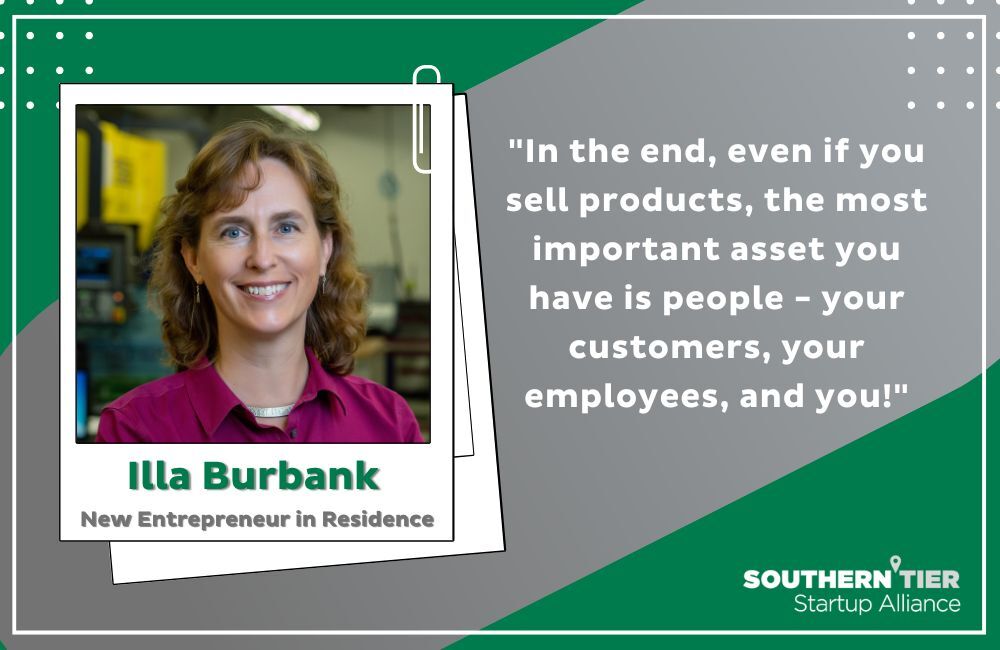
Q&A with Entrepreneur in Residence Illa Burbank
The Southern Tier Startup Alliance’s (STSA) business incubators and their member companies have access to a variety of resources to help develop and scale their startups. Among the most valuable is the skilled team of Entrepreneurs in Residence (EIRs), including recent addition Illa Burbank, who use their personal expertise to guide startups throughout their journeys.
Burbank’s wide array of experience will be extremely beneficial for STSA’s business incubators and member companies. She currently serves as COO of iFyber, a research and development organization that offers development and testing services for the medical and consumer product industries. She gained a thorough understanding of manufacturing operations during her 21 years at Incodema Inc as CFO, with the last four years as President. The company spun off Incodema3D and acquired Newcut during her tenure as a c-suite leader. She also spent seven years as a commercial loan analyst and lender, strengthening her experience in finance. With Burbank’s knowledge in strategic planning, systems implementations, financial analysis and more, she brings a diverse set of perspectives to STSA.
We recently spoke with Burbank about her startup experience and how it will shape her interactions with advisees.
Why do you think Ithaca, N.Y. and the Southern Tier is such a great place to launch a startup? What challenges are present, and how do you combat them?
Ithaca is home to a family of entrepreneurs who have run successful companies and either stayed in Ithaca or relocated to Ithaca because it is a great place to live. There are multiple startup accelerators and resources to help new companies. The ability to collaborate with people who have “been there, done that” means one can learn from others’ mistakes.
One of the challenges is that it is not easy to travel to/from Ithaca. However, the pandemic has shown us that many times you don’t need to travel and you can easily collaborate using Microsoft Teams or Zoom.
What would you consider your area of expertise, and how will it benefit STSA?
With a degree in finance, I spent seven years in the banking area and then left to consult in accounting functions for small businesses, so I have a strong background in “numbers.” For 21 years, I worked in a manufacturing environment and grew with the company, which was a startup but ended up acquiring a business, spinning off a new business, and eventually being sold to a private equity firm. Being part of the business from ground up means your “other duties as assigned” ends up longer than your original job description. In addition to accounting, I have led the HR function, operations, grant writing, quality systems, health and safety, and systems implementations.
These experiences mean I can assist STSA business incubators and their member companies who need help setting up systems across multiple functions or perhaps just need to understand the basics in accounting or other areas.
What advice learned during your own experience of entrepreneurship is essential for startups to know?
I think some startups will throw together “something” to get things going. That is fine at the very beginning, especially if you don’t have any outside stakeholders. However, it will make life easier if you think about your end game.
Will your process scale? How will your financials look to an outsider; is there enough detail/accuracy? It is easy to track two jobs/customers, but how will you track 90 jobs/customers simultaneously? If an auditor comes in, will you be ready to face them?
In the end, even if you sell products, the most important asset you have is people – your customers, your employees, and you!
